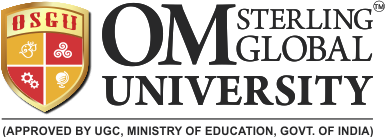The world is waking up to the undeniable connection between diet, lifestyle, and overall health. This growing awareness has fuelled a demand for qualified professionals who can bridge the gap between food and well-being. Here's where a B.Voc. in Nutrition and Healthcare Science steps in, offering a unique educational path for those passionate about empowering individuals and communities through the power of nutrition.
What is B.Voc. in Nutrition and Healthcare Science?
Unlike traditional, the B.Voc. (Bachelor of Vocation) program takes a more application-oriented approach. This three-year undergraduate program equips students with a strong foundation in the science of nutrition, alongside practical skills crucial for success in the healthcare field.
Key Course Components:
- Fundamentals of Nutrition: This core component delves into the science of food - its composition, how the body absorbs and utilizes nutrients, and the role of each nutrient in maintaining optimal health. Students learn about macronutrients (carbohydrates, proteins, fats) and micronutrients (vitamins and minerals), their functions, and potential deficiencies.
- Clinical Nutrition: This section focuses on the application of nutrition principles in managing specific health conditions. Students gain knowledge about dietary modifications for diabetes, heart disease, kidney disorders, and other ailments. They also learn to assess nutritional needs and design therapeutic diets for individuals.
- Food Science and Technology: This section explores the science behind food processing, preservation, and quality control. Students gain insights into food safety measures, food analysis techniques, and emerging food trends. Understanding these aspects equips them to confidently advise clients on food choices and healthy meal preparation.
Beyond the Textbook: Practical Skills Development
A hallmark of the B.Voc. program is its emphasis on practical training. Here's what sets it apart:
- Laboratory Skills: Students gain hands-on experience in laboratory settings, learning various techniques relevant to nutritional assessment. This may involve analyzing blood samples, conducting food analysis, and interpreting test results.
- Communication Skills: Effective communication is key to successful client interaction. The program equips students with communication and counseling skills, enabling them to translate complex scientific concepts into easily understandable advice.
- Internship Opportunities: Most B.Voc. programs integrate an internship component, allowing students to put their theoretical knowledge into practice in real-world settings. This could involve working in hospitals, clinics, community health centers, or even the food service industry.
Career Opportunities for B.Voc. Graduates
With a B.Voc. in Nutrition and Healthcare Science, graduates can explore a diverse range of career paths, including:
- Dietitians: Dietitians work in hospitals, clinics, and other healthcare settings, creating personalized dietary plans for patients with various medical conditions. They also educate patients on healthy eating habits.
- Nutrition Educators/Counselors: They promote healthy eating habits in community settings, schools, or workplaces. They may develop educational programs, conduct workshops, and offer individual consultations.
- Food Service Management: Graduates can find roles in hospitals, schools, or catering companies, ensuring the preparation of nutritious and safe meals. They may also work in food product development or quality control.
- Public Health Nutrition: This path involves working with government agencies or NGOs to develop and implement public health programs aimed at improving dietary habits within communities.
- Self-employment: Graduates with entrepreneurial spirit can opt to establish private practice, offering personalized nutrition consultations and counseling services.
Beyond Qualifications: The Value of a B.Voc. Degree
The B.Voc. program goes beyond equipping students with just technical knowledge. It fosters a holistic approach to health, emphasizing the importance of preventive care and healthy lifestyle choices. Graduates develop critical thinking skills, allowing them to analyze research and adapt their approach based on individual needs.
Is a B.Voc. in Nutrition and Healthcare Science Right for You?
If you are passionate about promoting health and well-being, possess strong analytical and communication skills, and enjoy working with people, a B.Voc. in Nutrition and Healthcare Science could be the perfect stepping stone for your career. This program equips you with the knowledge and practical skills needed to make a positive impact on the lives of individuals and communities, empowering them to achieve optimal health through personalized dietary interventions.

.jpg)